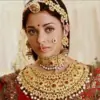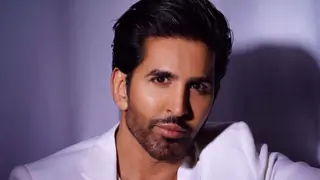I've only read half of the conversation, so I'm replying to the part that I've read (ONLY)
Will read and reply to the other half later. I'm writing this reply since 2 days 
First things first: While I really enjoyed Jodha Akbar and thought the actors did an amazing job portraying Akbar, I’m not someone who supports Akbar or his actual policies in history. The show was fun, and I loved the way Akbar was shown...complex character, and the actor brought him to life in a way that was super engaging. But when it comes to the real historical figure, I think there’s a lot more to be critical about.
Painting wala topic - You’re right...Akbar’s portrayal in those old paintings with a smooth face and deep-set eyes never really sat right with me either. Considering his Mongol ancestry, the whole “wide eyes” thing doesn’t make sense. I didn’t even know he had a beard in real life or wore a tilak. I guess these old depictions aren’t always trustworthy, and it’s kind of wild to think about how much of what we see in history is just artists’ interpretations rather than accurate representations. But then again, these paintings were made to present an idealized version of rulers, so I guess that’s something to consider.
I know Akbar was a man of his time, but that doesn’t mean we should just ignore the stuff that was problematic. Like you said, history’s written by the victors, and Akbar’s legacy gets a lot of positive spin, especially in places like textbooks or media. But the more I read, the more I’m finding that his policies, particularly towards Hindus and religious tolerance, don’t really live up to the glorified version we often hear about.
About naming places - Names aren’t just names...they carry history, culture, and identity. Changing them isn’t just a simple act; it’s a way of claiming ownership over something. And the whole thing with Akbar renaming places or changing titles doesn’t sit well with me. It feels like a power move, especially when we consider how deeply religious significance was tied to these names.
Akbar’s treatment of Hinduism and temples - Honestly, Akbar’s stance on Hinduism is so confusing. On one hand, he’s remembered for being tolerant and promoting the idea of religious freedom, like when he abolished the jizya tax. On the other hand, there’s the destruction of Hindu temples in places like Prayag and Varanasi. That’s a huge contradiction. Sure, he might have allowed some temples to be rebuilt, but the destruction he caused is still part of his legacy, and that can’t just be brushed under the rug because it doesn’t fit the narrative we like to hear. You can’t destroy sacred sites and then expect to be remembered as a champion of tolerance
The whole thing with the jizya tax is another example of how Akbar’s policies were inconsistent. He may have abolished it for a time, but the fact that it was brought back later just makes me question how much of it was genuine reform and how much was politically motivated. If it had been a permanent decision, I’d have more respect for it. But the fact that it was reversed just shows that Akbar’s policies weren’t as forward-thinking as they might appear.
On Akbar’s marriages and alliances - This is something that’s always bugged me.......why was it always Hindu princesses marrying into the Mughal family, and why were they expected to convert? There’s no significant example of a Mughal princess marrying a Hindu prince and keeping her religion. That’s a one-way street, and it just doesn’t seem fair. Akbar may have been a master at diplomacy, but he wasn’t willing to meet Hindus halfway in this respect. It feels like a double standard 
Mariam-uz-Zamani identity - I totally agree with you on the issue of Mariam-uz-Zamani. Her name being erased is a big deal, and I can’t help but think there was some intention behind it. Her identity as a Hindu princess and her role in Akbar’s court should’ve been acknowledged. Erasing her name and minimizing her importance feels like an effort to hide parts of history that don’t fit the idealized image of Akbar. The fact that she was Hindu and rose to such a powerful position is a big deal, so why ignore it? It feels like an attempt to downplay the role of women in history, especially if their faith or identity didn’t align with the narrative that was being promoted at the time. Moreover what about those texts that say Jodha was not Akbar' wife but bahu? 
Look, Akbar might have been a skilled leader, and I’ll give him credit for doing some things that were ahead of his time. He had the ability to create alliances and expand the empire, and he understood the value of diplomacy. But that doesn’t make him above criticism. His treatment of Hinduism, his policies, and the things he allowed to happen during his reign don’t add up to this glowing picture of a perfect ruler. Akbar’s actions weren’t all noble, and the show’s portrayal of him as a larger-than-life figure doesn’t really reflect the more problematic parts of his reign.
To wrap it up, while I absolutely loved Jodha Akbar for its entertainment value and the way Akbar was portrayed in the show, the real Akbar....his actions, his policies....are much more complicated. I’m not here to glorify him. He did some good things, but he also made decisions that, when you look at them through a modern lens, are tough to defend.
PS - Accha hua NCERT se nikal diya. It’s honestly frustrating how NCERT tries to paint Akbar as this perfect, "tolerant" ruler. They don’t exactly ignore his flaws, they just sweep them under the rug. Temple destruction, harsh campaigns, forced conversions? All conveniently downplayed. Why? To keep his image squeaky clean, of course. Sure, Akbar did some good, but he wasn’t a saint. Glorifying him like this completely ignores the messy reality of his reign. Let’s stop pretending he was all good ... history’s more complex than that.
I don’t intend to hurt anyone, just voicing out my opinions 










 (Or, if you don't wish to read ahead and want a direct reply to the issues you've raised above, please say so and I'll come to it!)
(Or, if you don't wish to read ahead and want a direct reply to the issues you've raised above, please say so and I'll come to it!)


 Same here, I hope you'll take my replies in the right spirit as well. :)
Same here, I hope you'll take my replies in the right spirit as well. :)
 Not initially, because Akbar wasn't a great/good man from day one. He did a whole lot of awful things, learned from them, changed them, and became a better man. Yes, Jaziya was abolished only temporarily in 1564, likely as a political move to appease Hindus. However, in 1579 it was permanently and completely abolished, as was the pilgrimage tax. It was reinstated only in Aurangzeb's reign, a. hundred years later.
Not initially, because Akbar wasn't a great/good man from day one. He did a whole lot of awful things, learned from them, changed them, and became a better man. Yes, Jaziya was abolished only temporarily in 1564, likely as a political move to appease Hindus. However, in 1579 it was permanently and completely abolished, as was the pilgrimage tax. It was reinstated only in Aurangzeb's reign, a. hundred years later.














375